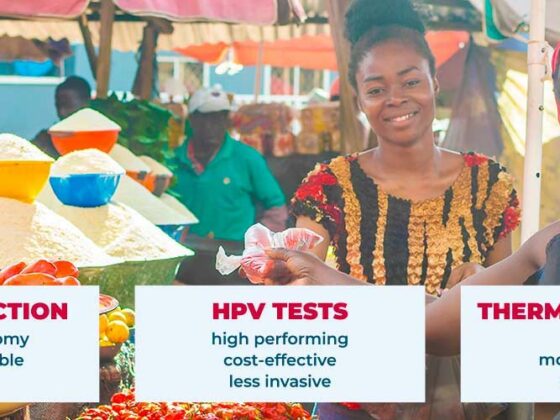Doctors at the Tata Memorial Hospital in Mumbai have shown that an ultra-low dose of the immunotherapy drug nivolumab significantly improves survival in patients with recurrent or newly diagnosed head and neck cancers. The findings of the single-centre phase III randomised controlled trial are significant because the trial protocol used just 6% of the recommended dose of nivolumab. With the cost of nivolumab for treating recurrent/metastatic head and neck cancers estimated at more than $36,800, this magnitude of dose reduction could significantly reduce the cost of treatment and open doors for wider access, especially for patients in low- and middle-income countries (LMICs).
Head and neck cancer is the most common cancer in many developing countries, especially in South Asia, and is the sixth most common across the world. Despite being available for more than 20 years, basic cancer drugs found to be most effective against the disease are not accessible for patients in most LMICs, according to a 2021 study published in the Lancet Oncology. Immunotherapy drugs such as nivolumab are accessible to only 1–3% of patients with recurrent or advanced head and neck cancer in India.
Head and neck cancers across the world
Head and neck cancers are the most common cancers in South Asia, and are caused primarily by chewing tobacco and areca nut and drinking alcohol. Most of those affected are male, poor and illiterate, and they mainly present at an advanced stage and have limited access to healthcare. In contrast, head and neck cancers account for only 1–4% of cancers in the western world, with the main causes being smoking and drinking alcohol. Patients in higher-income countries tend to be younger, of both genders, and have better survival rates.
What convinced Vijay Patil, lead author of the study and professor and medical oncologist at the Tata Memorial Hospital, to study the efficacy of the ultra low dose protocol was the fact that most of his head and neck cancer patients, including those with health insurance, were not able to afford nivolumab. Further, there was a credible scientific rationale, with evidence that the drug could be efficacious even at 0.3 mg/kg, while the drug had been trialled and approved for use at 3 mg/kg. Differences in the average body size of the patient population were an additional consideration: the approved dose was based on the calculation that the average patient is 80–90 kg, while the average Indian patient weighs around 60–70 kg.
So while the FDA-approved dose of nivolumab for patients with recurrent/metastatic head and neck cancer is 240 mg once every two weeks, the doctors at Tata Memorial Hospital designed a trial to determine whether a dose of 20 mg every three weeks could work.
The study, which was published in the Journal of Clinical Oncology in October 2022, treated with palliative intent 151 adult patients with recurrent or newly diagnosed advanced head and neck cancers, who were randomised 1:1 between the control and the experimental arm. All participants were treated metronomically (low-dose, frequent administration) with oral methotrexate, celecoxib and erlotinib. In addition to this protocol, participants in the experimental arm were given intravenous nivolumab 20 mg flat dose once every three weeks. At the end of one year, 43.5% of patients in the arm that received nivolumab were still alive, compared with 16.3% of those in the control arm.
Practice-changing impact
The impressive trial results open the gateway to conducting similar studies in the treatment of lung cancer, kidney cancer and breast cancers among others, as well as opening gateways for new indications for nivolumab, says Patil. Bishal Gyawali, a medical oncologist and associate professor at the Department of Oncology, Queen’s University, Canada, and a leading voice in global oncology, calls the results “immediately practice-changing”. He welcomes the fact that patients who could not have afforded the full dose may now be able to afford immunotherapy, and agrees with Patil that “this opens up avenues to test other similar strategies – lesser duration, lesser frequency etc and improves access to other drugs in other disease sites as well.”
The study also highlights the urgent need for ‘near-equivalence’ studies to investigate further the clinical outcomes associated with dose de-escalation, write Aaron Mitchell (Department of Epidemiology and Biostatistics at Memorial Sloan Kettering in New York) and Daniel Goldstein (Faculty of Medicine, Tel Aviv University, Israel) in a Journal of Clinical Oncology editorial. They point out that there are essentially only two strategies to reduce costs and increase access to immunotherapy: reducing the cost per unit or reducing the amount of drug per patient. Reducing the unit price of a particular drug would require a strong negotiating position by the health payer or increased competition among agents, they say, noting that this is difficult as cancer drug prices fail to respond to new competition. The only immediately accessible option, they argue, is to reduce the amount of drug per patient, either by using lower doses, reduced frequency, or reduced duration of treatment, “The current study of ultra-low dose nivolumab is, therefore, an important step toward realising this strategy,” write Mitchell and Goldstein.
Whether the study will change clinical practice in high-income countries is more of an open question, Mitchell commented to Cancerworld. That would depend on whether providers are able, at a local level, to apply the findings from the Tata Memorial study to treat people with the equivalent of a single dose of the protocol approved by the US and European regulators. “I see little ability to implement something like this in the US if the low dose does not have FDA approval,” says Mitchell.
There is an additional issue in that the metronomic drug combination used alone as the comparator would be considered non-standard in most high-income countries, where cisplatin and cetuximab are used to treat this patient population (with immunotherapy approved for tumours that prove resistant to platinum drugs). As Patil points out, it was the appropriate comparator in the Indian setting, where the metronomic triple-drug regimen has been used for the last 14 years, with good results. A single-arm phase I/II study, published in the Journal of Clinical Oncology, 2019, showed response rates and progression free survival using that regimen in patients with platinum-refractory/early-failure oral cancer that compared favourably with results from a separate study using nivolumab in a similar patient population.
The metronomic triple-drug regimen is also much more affordable than the western standard of cisplatin and cetuximab, and it can be taken by patients at home, which is important since most head and neck cancer patients in India cannot afford the loss of income involved in visiting hospitals for chemotherapy infusions.
Applying the same principle to other cancers
Buoyed by the findings of the nivolumab trial, a lung cancer trial using an ultra low dose on the immunotherapy drug pembrolizumab is expected to begin at Tata Memorial Hospital. A similar trial for patients with kidney cancer is already underway at another centre in India, says Patil. What bothers him is that India’s national health insurance scheme Ayushman Bharat Pradhan Mantri Jan Arogya Yojana still does not include treatment with immunotherapy drugs. As the scheme only covers costs up to $6,125.00 per family per year, it was out of the question to include immunotherapy till now. However since low-dose nivolumab treatment is now available for less than €4,000, the Indian government should consider covering immunotherapy and ensure more patients get access, says Patil, “Otherwise there is no point [to the trial]”.
De-escalation trials like these could be hugely beneficial in western settings, improving value for money, thereby further improving access to immunotherapy, including for use in cancers and disease settings yet to be approved or covered for reimbursement. Yet it remains difficult to find the funding to carry them out: pharmaceutical companies have no interest in running de-escalation trials, and the amount of public or philanthropic money available is very limited. That said, “Given the huge financial cost of immunotherapy drugs,” says Mitchell, “a small portion of clinical trials in the US are still publicly funded and could be used for this purpose.”
There could also be a problem that patients may be reluctant to be randomised to de-escalated treatments, says Gyawali, which is why these trials can be easier to run in low- and middle-income countries. “These trials can be a good example of mutual benefit and collaboration between high-income countries and low/middle-income countries,” he adds. “Low/middle-income countries can run these trials with collaboration and support from high-income countries, but the results can be practice changing globally, and can help high-income countries save costs as well.”













1 comment
Very interesting studies. They definitely are practice changing in low income countries …we need to guide similar trials in the ME for lung cancer as well
Comments are closed.